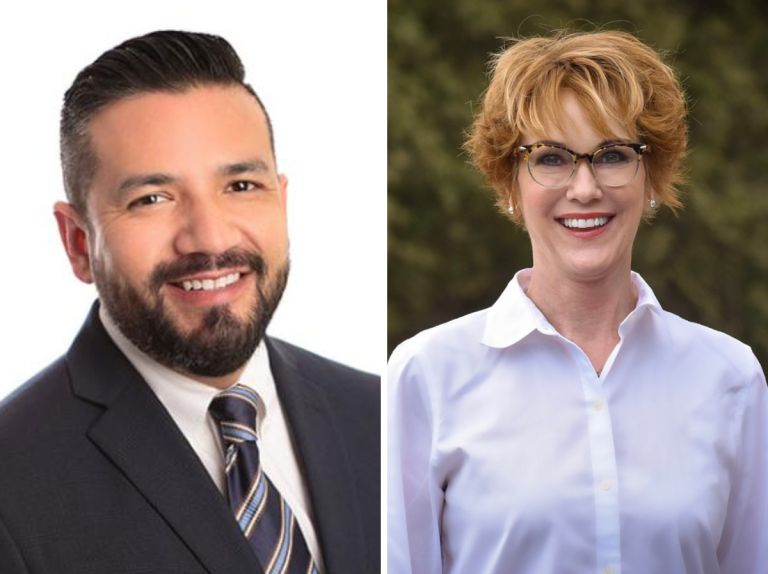
The Destinations International 2024 Advocacy Committee meets every two weeks to discuss the latest issues and threats that face destination organizations. In our first quarterly release, we feature a collection of all topics discussed and the collective commentary from the advocacy committee co-chairs.
The Advocacy Committee co-chairs, Gary Sanchez of Visit Dallas and Julie Gilbert of Destination Door County, comment on the topics discussed in the first quarter of 2024:
- Hidden Fees in Hospitality
- A Tourist Tax/Levy
- Destination Promotion: A Catalyst for Community Vitality
- Universal TikTok Ban
Topic: Hidden Fees in Hospitality
"It’s absolutely getting more expensive to travel. Most of us are aware of the costs associated with travel – airline tickets, accommodations, rental cars, etc.; however, we are observing an increase in hidden fees and costs associated with these and other components of travel and hospitality. Hidden fees in the travel and hospitality industry can turn a seemingly affordable getaway into a budget-busting experience. While many travelers meticulously plan their expenses, these unexpected charges can catch even the most seasoned globetrotters off guard."
One common culprit is the resort fee, often tacked onto the final bill without prior disclosure. These fees, purportedly covering amenities like pool access or Wi-Fi, can significantly inflate the cost of a hotel stay. Similarly, airline tickets may appear attractively priced, only for additional charges for baggage, seat selection, or even in-flight snacks to accumulate quickly. Car rental companies are notorious for hidden fees, including charges for insurance, additional drivers, or returning the vehicle without a full tank of gas.
To avoid falling victim to these stealthy charges, travelers should scrutinize booking details and read the fine print carefully. Researching potential fees beforehand, opting for all-inclusive packages when possible, and asking about additional charges upfront can help mitigate surprises. By staying vigilant and informed, travelers can ensure their journeys are free from unwelcome financial shocks.
One area of particular concern is tourism leakage, where the money that is spent by the traveler in any given destination which, rather than staying in and spreading through the destination where the money is spent, leaks out to other economies. One way of addressing tourism leakage is to promote locally owned businesses and encourage travelers to spend their money on locally sourced products and services that help retain revenue within the community. Additionally, investing in community-based tourism initiatives empowers local residents to participate in and benefit from the tourism industry directly. Developing sustainable tourism practices that prioritize environmental and cultural preservation not only attract responsible travelers but also ensure long-term economic benefits for the community.
"Being upfront about all costs not only helps in managing expectations but also enhances the overall guest experience. This approach can lead to more positive reviews and repeat visits, benefiting the industry in the long run. It might also be beneficial for businesses to advocate for clearer regulations and standards about fee disclosures to ensure consistency and fairness across the board."
Topic: Tourist Tax/Levy
"Initially, some governments introduced tourist taxes to address issues of over-tourism while also generating revenue from the influx of visitors to their destinations. In many cases, these taxes are commonly included in the overall cost of accommodation. However, in 2024, the UK began imposing a new system called an Electronic Travel Authorization (ETA), whereby visitors from the US, Europe, Australia, and Canada will be required to apply for permission and pay to enter the country via an online application."
Although not a “tourism tax or levy” in the traditional sense, in 2022, Dallas voters approved an increase in a tax collected from room rentals in the city to help pay for a new convention center and renovations for six venues at Dallas’ historic Fair Park. The campaign was successful (yielding
nearly 70% of the vote) partly because of the messaging that the new convention center and improvements to Fair Park would be paid for by a “tourism tax” imposed on visitors to the city, and not residents of Dallas. Advocates praised the funding approach as essential for enhancing Dallas's competitiveness in tourism and event hosting, as well as for rejuvenating downtown and the 277-acre city-owned park in South Dallas.
While there's been some discussion about limiting access to attractions in various destinations, implementing a flat-out tourist fee is improbable in the United States. However, it's more widely embraced internationally, though there's a growing need for transparency regarding the allocation of these funds and their designated projects. Additionally, implementing a tourist fee in areas already burdened with high occupancy or resort fees presents other challenges. Destinations must vigilantly monitor proposals, including the establishment of tourism zones to entice new businesses with additional tax credits, ensuring clarity on how proposed tax increases will be utilized and their benefits to the community.
"Tourist taxes are used to generate revenue that supports tourism infrastructure and services which might include maintaining attractions, enhancing facilities like parks and museums, and promoting the destination. It can also help cover the costs of environmental conservation and cultural preservation efforts necessitated by tourism."
Some of the types of tourist taxes include accommodations tax, departure tax, environmental tax that helps fund preservation efforts in tourist heavy regions, and additional city taxes. There can be a negative impact on a destination’s attractiveness if these taxes are perceived as excessively high. It is very important for all of us to ensure transparency in all our communications on how these taxes are used to help mitigate any negative perceptions. As destination leaders, we must balance the tax rate with the perceived value it produces in infrastructure and services.
Topic: Destination Promotion: A Catalyst for Community Vitality
"It was a pleasure to remotely tune into the DI Marketing & Communications Summit in Salt Lake City to watch Andreas Weissenborn and Zeek Coleman guide us through their presentation, Destination Promotion: A Catalyst for Community Vitality, and unveil results of a new study connecting destination promotion with community well-being and vitality."
The presentation and data serve as a wonderful resource empowering DMOs to showcase their multifaceted contributions to their community. Beyond the evident economic advantages of heightened visitation, it illuminates the broader spectrum of benefits for community well-being and engagement. As awareness of these benefits deepens, support for the tourism industry naturally expands.
It's imperative to educate stakeholders not only on tourism's role in bolstering local businesses, job creation, and economic development but also on its social and sustainability dividends. Destination promotion fosters stronger community bonds, nurtures local culture, and fosters civic pride. Moreover, it can be tailored to align with sustainable tourism practices, ensuring enduring benefits for both tourists and residents.
"Destination Promotion: A Catalyst for Community Vitality is an incredible resource that helps all Destination Organizations support their value to the community not only the economic benefits of increased visitation but also the broader impacts for community well-being and engagement. By providing deeper insight into all these benefits, the support for the tourism industry continues to grow."
We must educate not only how tourism does help boost local businesses, creates jobs and contributes to economic development but also social benefits and sustainability. Destination promotion strengthens community ties, supports local culture, and increases civic pride. It can also align with sustainable tourism practices that ensure long-term benefits for both tourists and residents. Destination Door County launched our Community Investment Fund this past year and applications must show how their project benefits visitors and follows the WI State Lodging Tax Statute, but another qualification is that it has to benefit residents too. This allows a more inclusive and sustainable approach to tourism.
Topic: Universal TikTok Ban
"In the realm of social media, TikTok has undeniably taken center stage, captivating 150 million Americans with its short-form video content. However, this wildly popular app has found itself at the heart of a contentious debate in the United States, leading to legislation for its ban, and now in litigation to stop the national ban."
Allegations of the app's ties to the Chinese government have fueled fears of potential data mining and surveillance. While the Trump administration attempted to implement a ban in 2020, legal challenges and shifts in government delayed its enforcement. The Biden administration has continued to scrutinize TikTok's operations, signaling ongoing bipartisan concerns. Supporters of the ban argue it is necessary to protect American citizens and national interests. Critics, however,
view it as an infringement on free speech and an overreach of governmental authority. The debate underscores the complexities of balancing security imperatives with individual rights in the digital age, leaving the future of TikTok in the U.S. uncertain.
Although security concerns surround its usage, domestic and international destinations currently have an opportunity to leverage the app for promotion. Yet, a looming ban could impede DMOs’ ability to collaborate with content creators on the platform. TikTok is just one component of our promotional efforts. Repurposing content for other social media platforms could help mitigate the impact of a potential ban. While awaiting the outcome of a TikTok ban, many destinations are still cautiously engaging with the platform. Thankfully for most DMOs, a potential TikTok ban may not be catastrophic given their diversified social media strategies.
I appreciate our Advocacy Committee revisiting the TikTok ban after our initial discussion in 2023. Undoubtedly, we will continue to monitor this and bring it back as a discussion topic as it navigates its way through the courts.
"TikTok carries several risks and concerns, primarily related to privacy, security, and content. TikTok collects a vast amount of user data, including personal information, location data, and device identifiers. This has raised concerns about the security and privacy of user data, especially considering the laws and regulations governing data privacy in different countries."
If you look at data security there are worries about how TikTok stores and handles this data, particularly in relation to its parent company, ByteDance, which is based in China. There is the fear that user data could be accessed by the Chinese government due to local laws requiring companies to cooperate with intelligence work controlled by the state. TikTok’s algorithm is also highly efficient at pushing content to users, which can include harmful or misleading information. This is particularly concerning with topics like health advice, political content, or financial information where misinformation can have serious consequences. If bans do come into place for our destination, there are other platforms where we can migrate our video content to such as YouTube and Instagram Video Reels.


